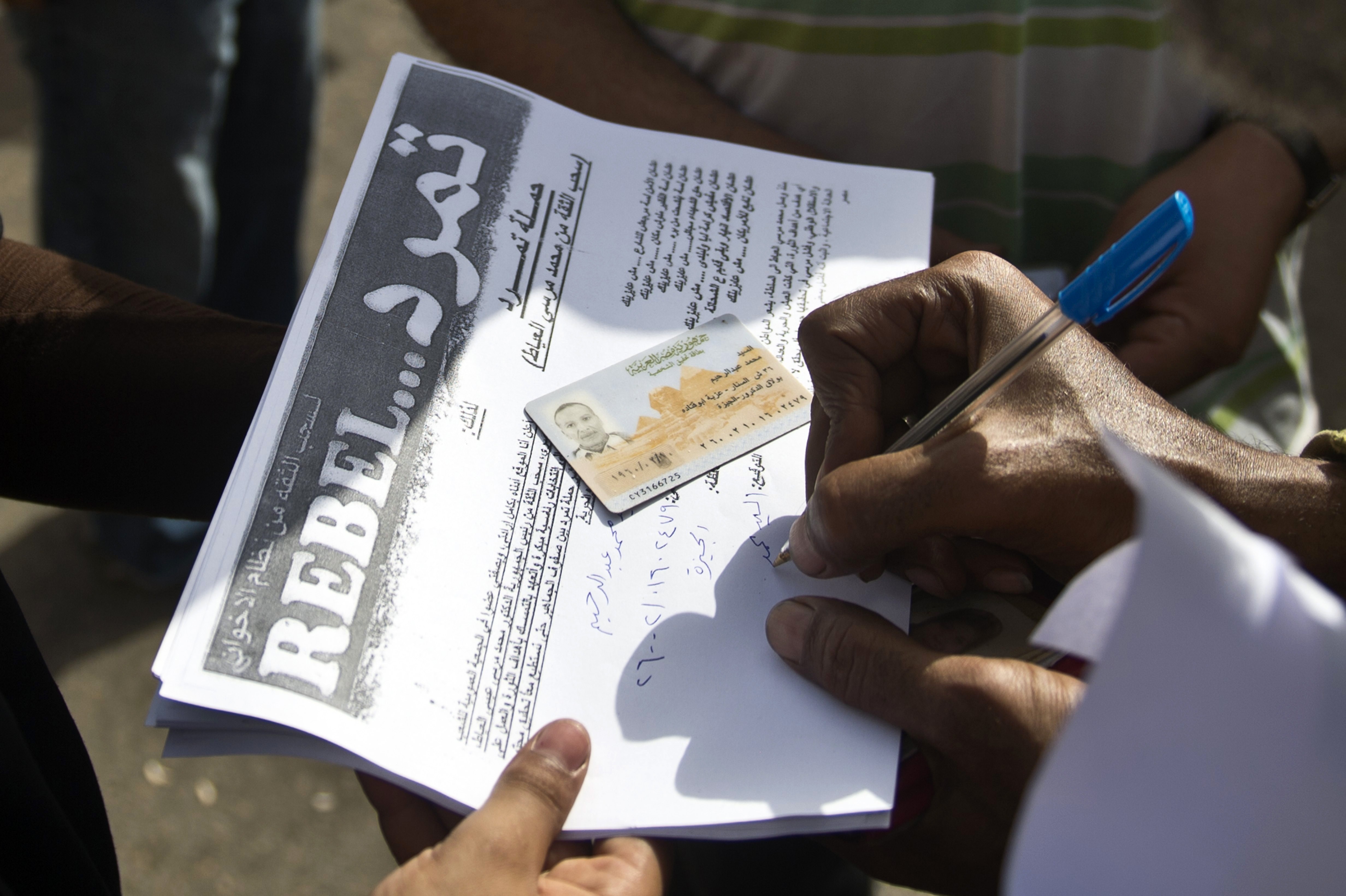By Yasmine Saleh/Reuters
CAIRO: A US decision to resume contact with the Muslim Brotherhood is a pragmatic move that recognizes its popular appeal in post-revolution Egypt and may also help Washington deal with other Islamist movements in the region.
The United States was behind the curve of Arab world politics as popular uprisings swept its secular, autocratic allies from power in Tunisia and Egypt and others in Libya and Yemen saw bloody rebellions against their decades-long rule.
Acknowledging groups whose views resonate most among Arab voters, even if those views can contradict Western liberal values, could help the US regain the initiative and ensure its influence still holds if Egypt’s democratic project succeeds.
“The Brotherhood is now the most powerful force in Egypt and the US knows it will have to deal with it,” said Shadi Hamid, director of research at the Brookings Doha Center.
The US decision, reported first by Reuters on Wednesday, was confirmed by US Secretary of State Hillary Clinton and welcomed by the Brotherhood.
The group was founded in 1928 as a religious body to promote Islamic values in Egyptian society, turning later into a political force that resorted occasionally to armed combat.
It renounced violence years ago and its stated vision now combines a conservative brand of Islam with the goal of a civil, democratic state.
The movement was officially banned but tolerated under former president Hosni Mubarak, who was ousted by an uprising in February. It is now seen as the political player best prepared for parliamentary elections due in September.
“There is now an intention among the Americans to agree to deal with the current of non-violent political Islam and accept its presence in power,” said Egyptian military expert Safwat Al-Zayaat.
But the overtures to a group sympathetic to Palestinian militant group Hamas — which rules the Gaza Strip and has vowed to destroy Israel — is likely to upset Washington’s strongest Middle Eastern ally.
“The American attempt to reconcile with the Muslim Brotherhood is a big problem for Israel,” said Eytan Gilboa, a Middle East expert at Bar-Ilan University near Tel Aviv. “The Muslim Brothers are the big opponents of the peace treaty with Israel … There’s a risk of the treaty being canceled.”
Another Israeli analyst, Gabriel Ben-Dor at the University of Haifa, said he saw no problem for Israel, even possible benefits if the move helps Washington better understand “how the political forces in the new Egypt are aligning.”
Israel Foreign Ministry spokesman Yigal Palmor said: “We are not making any comment now.” Other Israeli officials contacted by Reuters said they were still gathering more information.
Cooperation
US officials have long had informal relations with Brotherhood figures. Some were present at President Barack Obama’s landmark speech at Cairo University in 2009 and American congressmen have met with Brotherhood parliamentarians.
More official, and more regular, contacts could evolve into tentative cooperation on broader regional issues, with the US anxious to ensure that a democratic Egypt will keep the peace treaty with Israel.
Brotherhood officials have played down the prospect of scrapping the 1979 Camp David accords if they ever achieved enough power to sway foreign policy, insisting that they would keep deals that are in Egypt’s interest.
Egyptian commentators say a dialogue with the Brotherhood would give the United States one more channel to influence more militant groups such as Hamas and Lebanon’s Hezbollah, which have cooperated with the Brotherhood and share some of its goals.
“America could also use Egypt’s Brotherhood to pressure Hamas to accept certain things when needed,” said Emad Gad, a senior researcher at the al-Ahram Center for Political and Strategic Studies.
The benefits for the Brotherhood, which welcomed the prospect of formal contacts with Washington, seem less obvious.
Spokesman Mohamed Saad El-Katatni told Reuters they would help “clarifying our vision” and would not signify any interference in Egypt’s internal affairs.
But Brotherhood supporters might fear the movement’s leadership are selling out their principles to gain influence with Washington, still unpopular among many Muslims over the US-led wars in Afghanistan and Iraq.
“Technically it gives them more legitimacy on the political front, and internationally,” said Amira Salah-Ahmed, a 28-year-old Egyptian journalist.
“But at home it could discredit them and make people more suspicious of their intentions given the unpopularity of the US among Egyptians, especially now after the revolution when people are eager for more sovereignty.”
The Brotherhood has said it will contest no more than half of the seats in what would be Egypt’s first truly democratic parliament in decades and will not run for the presidency as it does not seek to dominate the government.
“They will be seen to be power seekers, which contradicts what they have said repeatedly,” said Gad.

